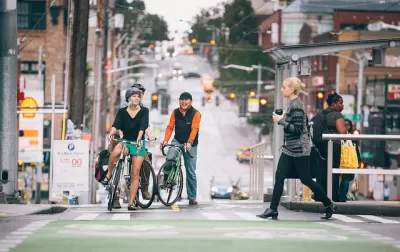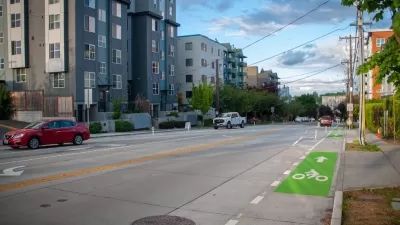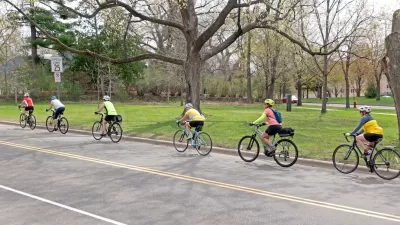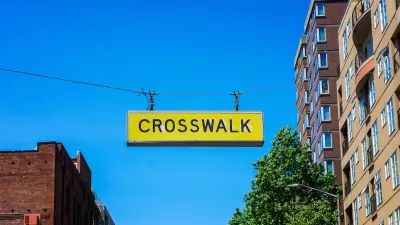Seattle officials hope a simplified design that avoids relocating railroad tracks will let the decades-old Ballard bike trail project move forward.

As Mike Lindblom reports, the city of Seattle has revised the design for a planned 1.4-mile bike trail along the Ballard waterfront, a project that has faced delays since the 1990s.
The trail, which would complete the Burke-Gilman Trail, has faced opposition from critics including the Ballard Terminal Railroad Co., the owner of tracks that the original trail design planned to relocate. According to Lindblom, "[f]ederal commerce law gives railroads the power to resist land takings, and a 2020 court ruling blocked the city’s goal to break ground last winter." Now, the new design keeps the bike trail in the same location but accommodates the adjacent tracks.
"The shared walk-bike trail will be 10 feet wide, rather than the previous 12-foot design. The city will rely on cheaper paint and plastic posts for two intersections, instead of concrete curbs and sidewalks," reports Lindblom. The new design does not address the safety concerns of opponents who insist that having to cross active truck driveways on Shilhole Avenue puts cyclists at risk. They suggest moving the trail inland to Leary Way.
Lindblom provides additional details on the trail's design and funding in the source article.
FULL STORY: Seattle simplifies Ballard bike-trail design to end a 20-year delay

Planetizen Federal Action Tracker
A weekly monitor of how Trump’s orders and actions are impacting planners and planning in America.

Restaurant Patios Were a Pandemic Win — Why Were They so Hard to Keep?
Social distancing requirements and changes in travel patterns prompted cities to pilot new uses for street and sidewalk space. Then it got complicated.

Maui's Vacation Rental Debate Turns Ugly
Verbal attacks, misinformation campaigns and fistfights plague a high-stakes debate to convert thousands of vacation rentals into long-term housing.

In California Battle of Housing vs. Environment, Housing Just Won
A new state law significantly limits the power of CEQA, an environmental review law that served as a powerful tool for blocking new development.

Boulder Eliminates Parking Minimums Citywide
Officials estimate the cost of building a single underground parking space at up to $100,000.

Orange County, Florida Adopts Largest US “Sprawl Repair” Code
The ‘Orange Code’ seeks to rectify decades of sprawl-inducing, car-oriented development.
Urban Design for Planners 1: Software Tools
This six-course series explores essential urban design concepts using open source software and equips planners with the tools they need to participate fully in the urban design process.
Planning for Universal Design
Learn the tools for implementing Universal Design in planning regulations.
Heyer Gruel & Associates PA
JM Goldson LLC
Custer County Colorado
City of Camden Redevelopment Agency
City of Astoria
Transportation Research & Education Center (TREC) at Portland State University
Camden Redevelopment Agency
City of Claremont
Municipality of Princeton (NJ)





























